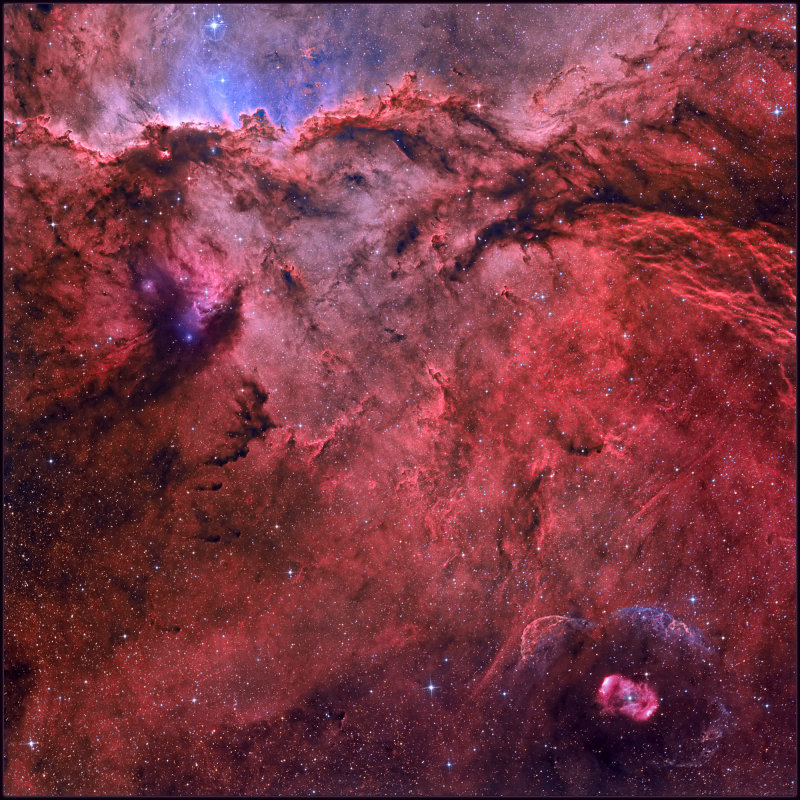Credit & Copyright: Kfir Simon
Explanation:
Fantastic shapes
lurk in clouds of glowing hydrogen gas in
NGC 6188, about 4,000 light-years away.
The emission nebula is found near the edge of a
large molecular cloud unseen at visible wavelengths, in the southern
constellation
Ara.
Massive, young
stars of the embedded Ara
OB1 association
were formed in that region only a few million years ago,
sculpting the dark shapes and
powering the nebular glow with
stellar winds and intense ultraviolet radiation.
The recent
star
formation itself was likely triggered by
winds and supernova explosions, from previous generations of massive
stars, that swept up and compressed the molecular gas.
Joining NGC 6188 on
this
cosmic canvas
is rare emission nebula NGC 6164,
also created by one of the region's massive O-type stars.
Similar in appearance to many
planetary nebulae, NGC 6164's striking,
symmetric gaseous shroud and faint halo surround
its bright central star at the lower right.
The field of view spans about two full Moons, corresponding to
70 light years at the estimated distance
of NGC 6188.
Best of APOD 2012:
Download a free 2013 APOD Calendar
Follow APOD on:
Facebook
(Daily)
(Sky)
(Spanish)
or Google Plus
(Daily)
(River)
1999 2000 2001 2002 2003 2004 2005 2006 2007 2008 2009 2010 2011 2012 2013 2014 2015 2016 2017 2018 2019 2020 2021 2022 2023 2024 2025 |
Yanvar' Fevral' Mart Aprel' Mai Iyun' Iyul' Avgust Sentyabr' Oktyabr' Noyabr' Dekabr' |
NASA Web Site Statements, Warnings, and Disclaimers
NASA Official: Jay Norris. Specific rights apply.
A service of: LHEA at NASA / GSFC
& Michigan Tech. U.
|
Publikacii s klyuchevymi slovami:
OB association - star formation - zvezdoobrazovanie - associacii, zvezdnye
Publikacii so slovami: OB association - star formation - zvezdoobrazovanie - associacii, zvezdnye | |
Sm. takzhe:
Vse publikacii na tu zhe temu >> | |
